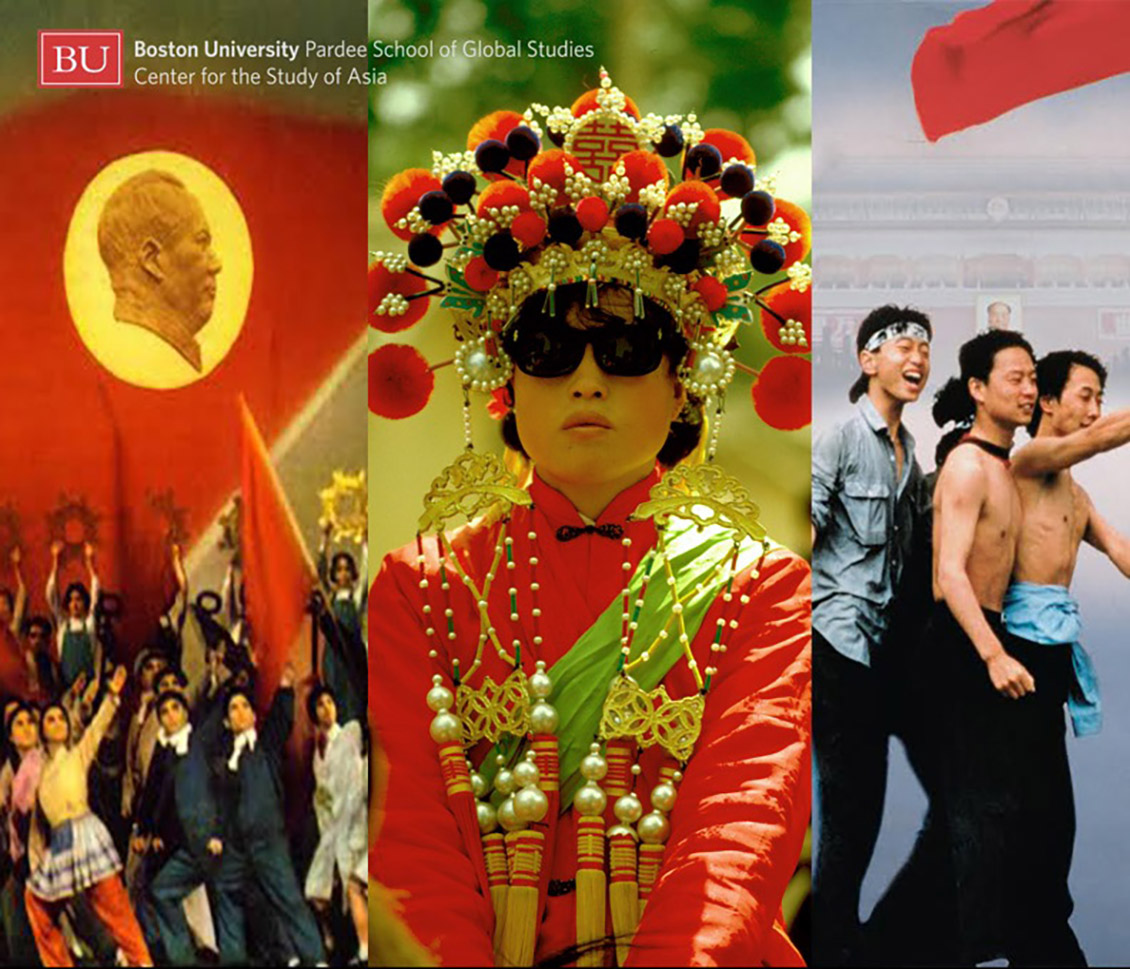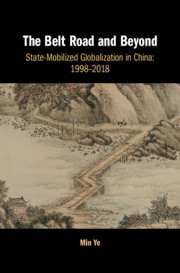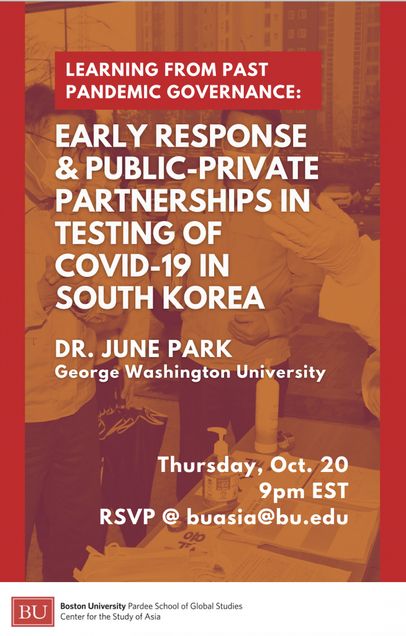History in Images, History in Words: In Search of Facts in Documentary Filmmaking
History in Images, History in Words:
In Search of Facts
in Documentary Filmmaking
A lecture by Carma Hinton
Robinson Professor of Visual Culture and Chinese Studies at George Mason University
Monday April 10, 2017 from 4-7 pm
at the Photonics Center (9th fl.), 8 St. Mary’s Street, Boston University
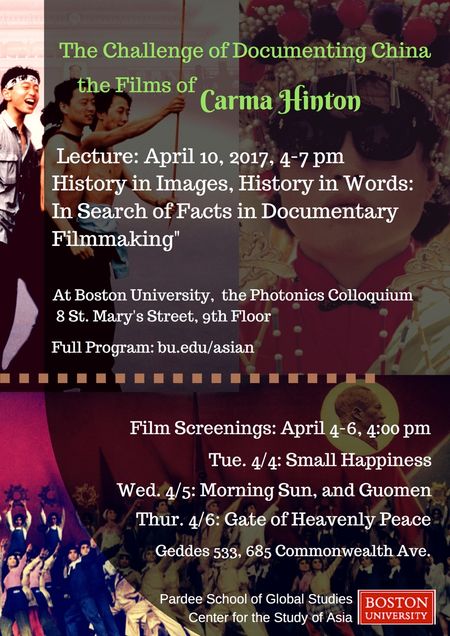 My presentation will focus on the process of documentary filmmaking, especially the many challenges my team and I faced in trying to create engaging filmic narratives that are both factually accurate and encompass multiple perspectives. I will use excerpts from my films as well as out-takes to illustrate the difficulties in determining what information to include and exclude, assess the compromises involved in the choices, and explore the consequences of taking various possible paths. I will also address the different problems that a historian encounters when presenting history in images as opposed to in words: the potential and limitation of each medium and what information each might privilege or obscure. I believe that in this age of “alternative facts” and “parallel universes,” reflections on the challenges in obtaining authenticity and truth and the importance of relentlessly striving to reach this goal, take on particularly urgent meaning.
My presentation will focus on the process of documentary filmmaking, especially the many challenges my team and I faced in trying to create engaging filmic narratives that are both factually accurate and encompass multiple perspectives. I will use excerpts from my films as well as out-takes to illustrate the difficulties in determining what information to include and exclude, assess the compromises involved in the choices, and explore the consequences of taking various possible paths. I will also address the different problems that a historian encounters when presenting history in images as opposed to in words: the potential and limitation of each medium and what information each might privilege or obscure. I believe that in this age of “alternative facts” and “parallel universes,” reflections on the challenges in obtaining authenticity and truth and the importance of relentlessly striving to reach this goal, take on particularly urgent meaning.
About the speaker:
Carma Hinton is an art historian and a filmmaker. She received her Ph.D. in Art History from Harvard University and is now Robinson Professor of Visual Culture and Chinese Studies at George Mason University. Together with Richard Gordon, Hinton has directed many documentary films, including Small Happiness, All Under Heaven, To Taste a Hundred Herbs, Abode of Illusion: The Life and Art of Chang Dai-chien, The Gate of Heavenly Peace, and Morning Sun. She has won two Peabody Awards, the American Historical Association’s John E. O’Connor Film Award, the International Critics Prize and the Best Social and Political Documentary at the Banff Television Festival, and a National News & Documentary Emmy, among others. Hinton is currently working on a book about Chinese scrolls depicting the theme of demon quelling. Carma Hinton was born in Beijing. Chinese is her first language and culture.

Prof. Min Ye appointed first Rosenberg Institute Scholar at Suffolk University

The Rosenberg Institute for East Asian Studies at Suffolk University is pleased to announce that we have appointed our first Rosenberg Institute Scholar. She is Dr. Min Ye, Associate Professor of International Relations, Boston University.
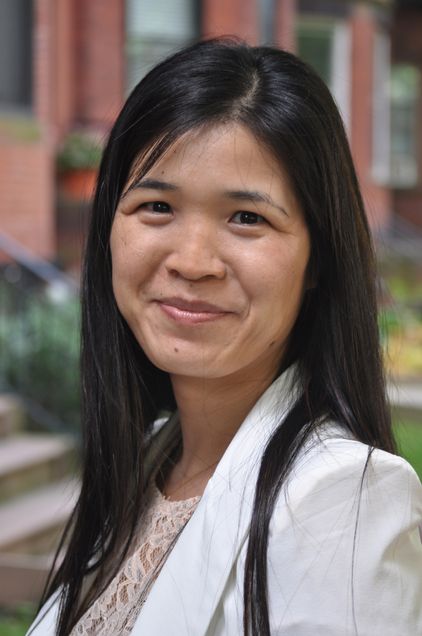 As part of this appointment, Dr. Ye will prepare a research paper which the Rosenberg Institute will publish on its website. The title of her research paper is “China and the Corona Virus: China remains a pragmatic globalist.” The paper examines the debates among policy communities in China and actions by the Chinese state to combat the corona epidemic and revive the economy. It suggests that the Chinese policy communities are divided across three groups: One, the pessimists who have focused on U.S-China relations and the stability of the existing world order; Two, the optimists who are affiliated with new think tanks and whose research focuses on China’s Belt and Road initiative; Three, the pragmatists who expect grave challenges facing China and the world and advocate for China to save itself while helping to stabilize the world market. In terms of actions, the central and local governments are both making concerted efforts to save domestic industry, attract foreign capital and stabilize international trade.
As part of this appointment, Dr. Ye will prepare a research paper which the Rosenberg Institute will publish on its website. The title of her research paper is “China and the Corona Virus: China remains a pragmatic globalist.” The paper examines the debates among policy communities in China and actions by the Chinese state to combat the corona epidemic and revive the economy. It suggests that the Chinese policy communities are divided across three groups: One, the pessimists who have focused on U.S-China relations and the stability of the existing world order; Two, the optimists who are affiliated with new think tanks and whose research focuses on China’s Belt and Road initiative; Three, the pragmatists who expect grave challenges facing China and the world and advocate for China to save itself while helping to stabilize the world market. In terms of actions, the central and local governments are both making concerted efforts to save domestic industry, attract foreign capital and stabilize international trade.
Dr. Ye received her PhD degree from Princeton University. She has published three books: The Belt, Road and Beyond: State-Mobilized Globalization in China, 1998 – 2018, (Cambridge University Press, 2020); Diasporas and Foreign Direct Investment in China and India, (Cambridge University Press, 2014); The Making of Northeast Asia, Stanford, CA: (Stanford University Press, 2010), co-authored with Kent Calder.
Min Ye is appointed for the period from March to June 2020. During this time she will remain at her home institution and at the end of her appointment will submit her paper to the Rosenberg Institute. She will also be invited to visit the Suffolk campus in the fall semester, to present her work and meet with Suffolk faculty and students.
We are pleased to welcome Dr. Ye as our first Rosenberg Institute Scholar. This appointment follows an international competition conducted in late 2019 by the Advisory Council of the Rosenberg Institute. An additional three scholars were selected, who will each receive a six-month appointment in rotation between September 2020 to December 2021. Details of this major initiative by the Rosenberg Institute will be announced in the coming weeks.
Ron
Ronald Suleski, PhD
Professor and Director
Rosenberg Institute for East Asian Studies
Associate in Research, Fairbank Center for Chinese Studies, Reischauer Institute for Japanese Studies, Harvard University
Suffolk University, Boston
Room 1026 History Department, 73 Tremont Street, Boston, MA 02108
Tel 617-973-5341 Fax 617-723-7255
rsuleski@suffolk.edu www.suffolk.edu/rosenberg
美國薩福克大學羅森伯格東亞研究所

The Belt Road and Beyond: State-Mobilized Globalization in China, 1998-2018
Hosted by Professor Grant Rhode (BUCSA and US Naval War College)
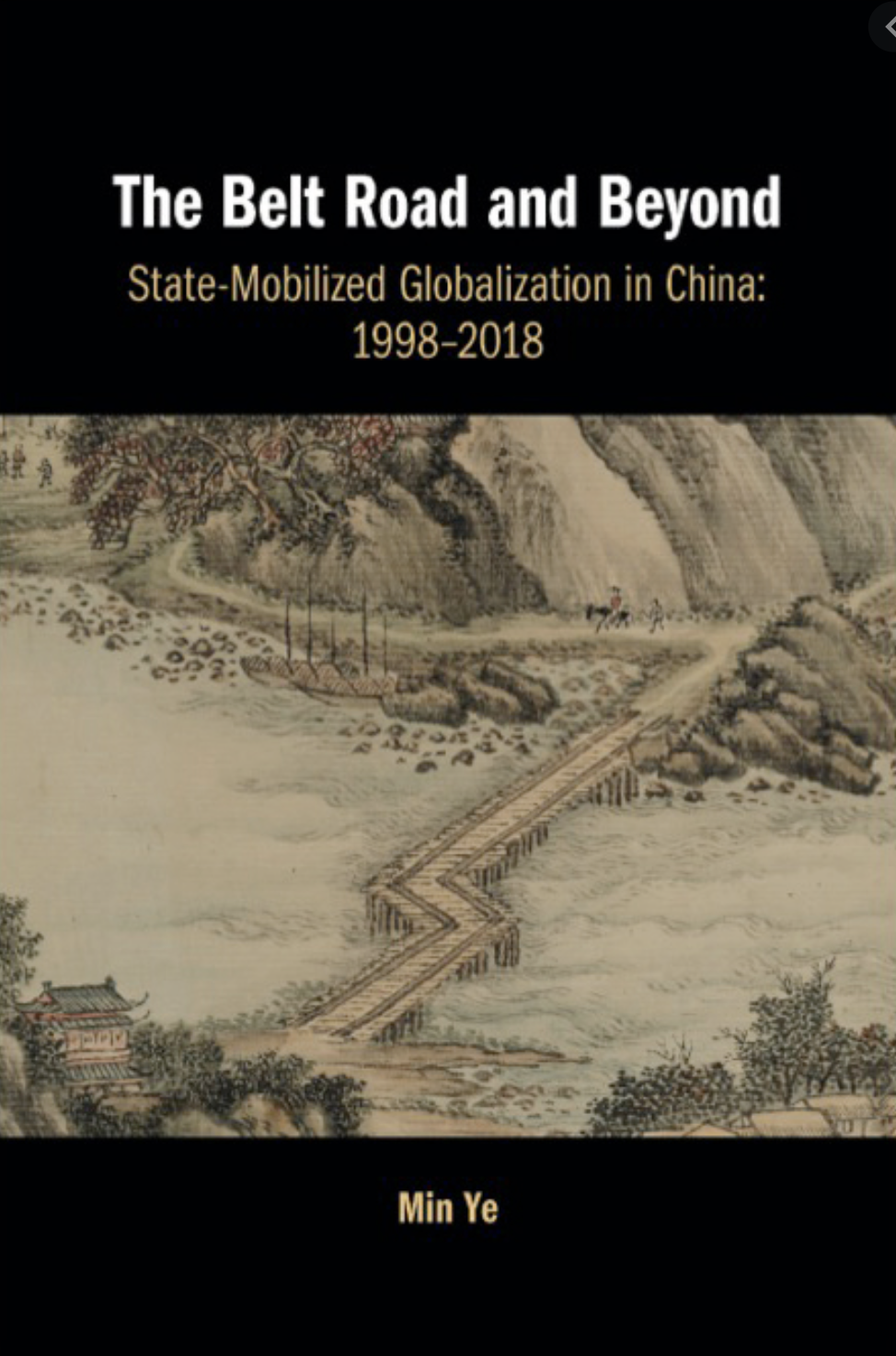
Tune in to this superb analysis of the Belt and Road Initiative by Pardee School Associate Professor Min Ye! Her recent research has focused on the historic precedents for the BRI within China, and the complex interplay of Chinese party, state, and local actors in implementing the BRI vision. Her resulting book The Belt Road and Beyond: State-Mobilized Globalization in China, 1998-2018, documents her often surprising findings with a focus on Chinese domestic aspects of the BRI, in contrast to the many studies focusing on BRI's international impacts. In this interview, conducted by BUCSA associate Grant Rhode, Professor Ye discusses what she has found out through her research during the past six years, and also includes comments on the impact of the current COVID crisis and implications for the future of the BRI.
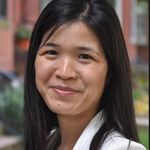
Min Ye is the author of The Belt, Road and Beyond: State-Mobilized Globalization in China 1998-2018 (Cambridge University Press 2020), Diasporas and Foreign Direct Investment in China and India (Cambridge University Press 2014), and the Making of Northeast Asia (with Kent Calder, Stanford University Press, 2020). Her articles, “Fragmentation and Mobilization: Domestic Politics of China’s Belt and Road”, “Competing Cooperation in Asia Pacific: TPP, RCEP, and the New Silk Road”, and “Conditions and Utility of Diffusion by Diasporas” have appeared in Journal of Contemporary China, Journal of Journal Asian Studies, and Journal of East Asian Studies.
Ye was the director of East Asian Studies program from 2010 to 2014 and launched the new major in Asian Studies at Boston University. She also served as a visiting scholar at Fudan University, Zhejiang University, and Chinese Academy of Social Sciences in China, as well as Rajiv Gandhi Foundation in India, Chinese University of Hong Kong, and the National University of Singapore. Ye has consulted Chinese state-owned companies and private companies on outbound investment. In addition, she served as the Pardee School Director of Undergraduate Studies from 2017 to 2019.
Ye has received grants and fellowships in the U.S and Asia, including a Smith Richardson Foundation grant (2016-2018), East Asia Peace, Prosperity, and Governance fellowship (2013), Princeton-Harvard China and the World Program postdoctoral fellowship (2009-2010), Millennium Education Scholarship in Japan (2006), and the Rosenberg Scholarship at Suffolk University (2020). In 2014-2016, the National Committee on the U.S-China Relations selects Min Ye as a Public Intellectual Program fellow.

Grant F. RHODE (e-mail: gfrhode@bu.edu) teaches and researches at the Pardee School of Global Studies at Boston University and at the U.S. Naval War College in Newport, Rhode Island. He is Associate in Research at the Fairbank Center for Chinese Studies at Harvard University and Faculty Affiliate of the China Maritime Studies
Institute of the U.S. Naval War College. He has been a Visiting Scholar in Taiwan at both National Chengchi University and National Taiwan University. He completed graduate work in Chinese studies at the Universities of Oxford and Cambridge and holds MALD and PhD degrees in International Relations and Asian Diplomatic History from the Fletcher School of Law and Diplomacy, Tufts University.
Dr. Rhode’s current research focuses on China’s role in historical and contemporary Eurasian maritime affairs. On the historical front, he is writing a book on Eurasian Maritime History for Global Strategists: Great Power Clashes along the Maritime Silk Road. On the contemporary front, Dr. Rhode helps lead Boston University’s conversations on China’s Belt and Road Initiative, including conferences at the Pardee School By Land and By Sea: China’s Belt and Road in Europe (2019) and Assessing China’s Signature Foreign Policy: the Expanding Belt and Road Initiative (2020).
BUCSA Asia Forum, an online dialogue on Asian affairs
an exciting online platform for the presentation and discussion of materials related to Asian culture, politics and society. A growing number of other items are in the works, including interviews and discussions that we plan to upload to the BUCSA website in the coming weeks. Topics range from China's ongoing Belt and Road Initiative, public health and the coronavirus crisis in South Asia, the evolving relationship between Iran and China, the impact of the Covid-19 pandemic on Asian-Americans, and many other timely subjects.
Watch this space for links to these important and engaging discussions, and links
to the recorded versions of past presentations!

Rethinking Kyoto Tourism
A Discussion with Dr. Jennifer Prough (Valparaiso University)
Discussant: Prof. Alice Tseng (Dept. of History of Art and Architecture, Boston University)
April 2, 2020

Asian American Resistance and Creative Clapbacks in the time of Covid-19
with Frances Kai-Hwa Wang
April 27, 2020
A Conversation with BU Professor of International Relations Min Ye on her new book
US-China Cyber Conflicts: TikTok, WeChat, and Sino-American Relations Today
A Conversation with Min Ye, Lei Guo, and Jack Weinstein
Moderator: Prof. James Katz (College of Communication, BU)
Thursday, October 8, 2020
Learning from Past Pandemic Governance: Early Response and PPPs in Testing of COVID-19 in South Korea
with June Park (George Washington University)
Thursday, October 20, 2020
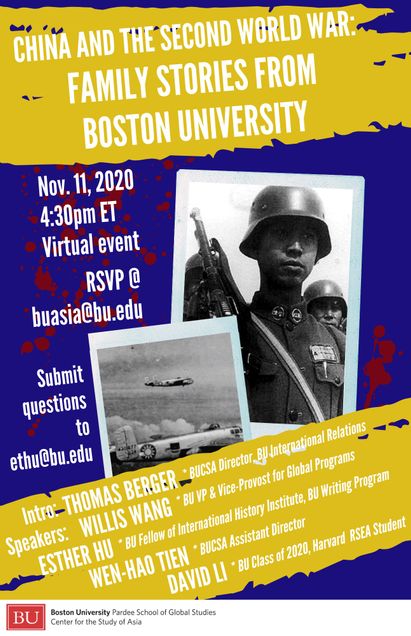 China and the Second World War: Family Stories from Boston University
China and the Second World War: Family Stories from Boston University
with Willis Wang, Esther Hu, Wen-Hao Tien, and David Li
Wednesday, November 11, 2020
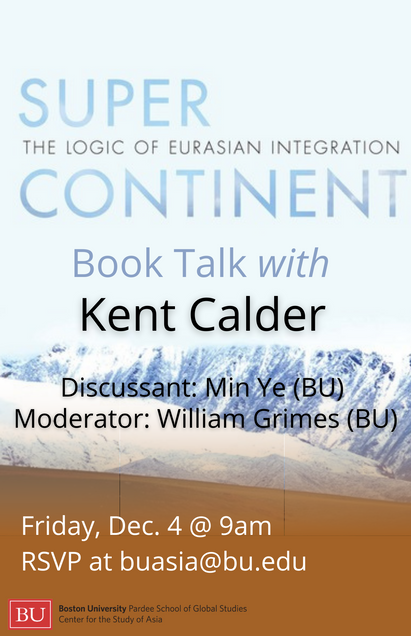 Super Continent: The Logic of Eurasian Integration, with Kent Calder
Super Continent: The Logic of Eurasian Integration, with Kent Calder
Discussant: Min Ye (Boston University)
Moderator: William Grimes (Boston University)
Friday, December 4, 2020
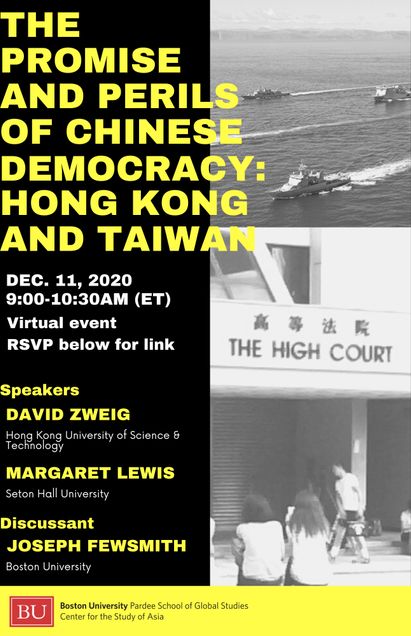 The Promise and Perils of Chinese Democracy: Hong Kong and Taiwan
The Promise and Perils of Chinese Democracy: Hong Kong and Taiwan
With David Zweig (Hong Kong University of Science and Technology)
Margaret Lewis (Seton Hall University)
Discussant: Joseph Fewsmith
Friday, December 11, 2020
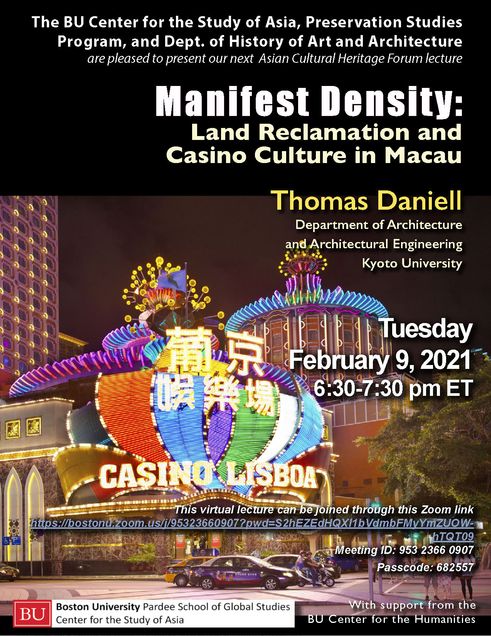 Manifest Density : Land Reclamation and Casino Culture in Macau, with Prof. Thomas Daniell, Dept. of Architecture and Architectural Engineering, Kyoto University
Manifest Density : Land Reclamation and Casino Culture in Macau, with Prof. Thomas Daniell, Dept. of Architecture and Architectural Engineering, Kyoto University
Asian Cultural Heritage Forum Lecture
Tuesday, Feb. 9, 2021
 In the series Assessing China's Belt and Road Initiative:
In the series Assessing China's Belt and Road Initiative:
STRATEGIC IMPLICATIONS: US-China Strategic Competition and the BRI
with Prof. Min Ye and discussant Prof. Joshua Shifrinson (both of the Pardee School of Global Studies, Boston University)
Friday, February 19, 2021
Asian American Resistance & Creative Clapbacks in the time of COVID-19 (Frances Kai-Hwa Wang)
The BU Center for the Study of Asia is pleased to present
with Frances Kai-Hwa Wang
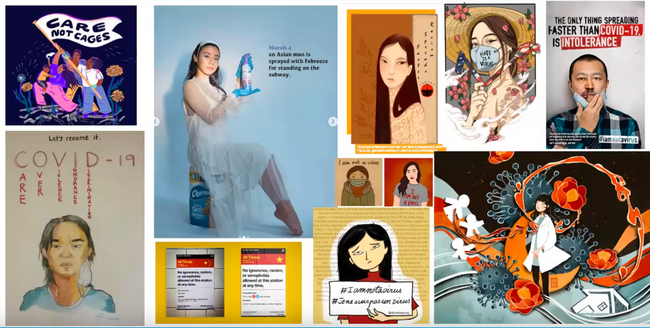
The history of Asian America is a history of resistance. And Art. We will look at moments in history and how Asian Americans have resisted and used art, including the time of the Chinese Exclusion Act of 1882, incarceration of Japanese Americans during World War II, the Vincent Chin case in 1982, and after 9/11. We will look at how Asian Americans are using art today in this time of COVID-19 to both share their talents and to clap back at anti-Asian American violence. And then we will think about what you can do to help the community during this time.

Frances Kai-Hwa Wang is a journalist, essayist, speaker, and poet focused on issues of diversity, race, culture, and the arts. Her writing has appeared at NBC News Asian America, PRI Global Nation, Cha Asian Literary Journal. She teaches Asian/Pacific Islander American media and civil rights at the University of Michigan. She co-created a multimedia artwork for the Smithsonian Asian Pacific American Center. She is a 2019 Knight Arts Challenge Detroit artist, Marguerite Casey Foundation Equal Voice Journalism Fellow on Poverty, and Keith Center for Civil Rights Detroit Equity Action Lab Race and Justice Reporting Fellow on the Arts. franceskaihwawang.com @
Rethinking Kyoto Tourism with Dr. Jennifer Prough
The BU History of Art & Architecture Department and BU Center for the Study of Asia are pleased to present:
Rethinking Kyoto Tourism
with Dr. Jennifer Prough
(Valparaiso University)

Photo courtesy of Jennifer Prough
Dr. Jennifer Prough, Associate Professor of Humanities and East Asian Studies at Valparaiso University speaks with Alice Y. Tseng, Professor of Japanese Art and Architecture at Boston University on Prough’s research on Kyoto’s contemporary tourism industry. She reassesses Kyoto as a unique destination, and the ways that this historical capital’s long heritage is mobilized for cultural agendas, social purposes, and economic strategies. Current issues and challenges caused by overtourism, globalization, and the COVID-19 pandemic are also discussed.
Radiation and the 2020 Tokyo Olympics (live stream March 26, 2020)
The BU School of Theology's Faith and Ecological Justice program
is pleased to invite you join our livestream discussion:
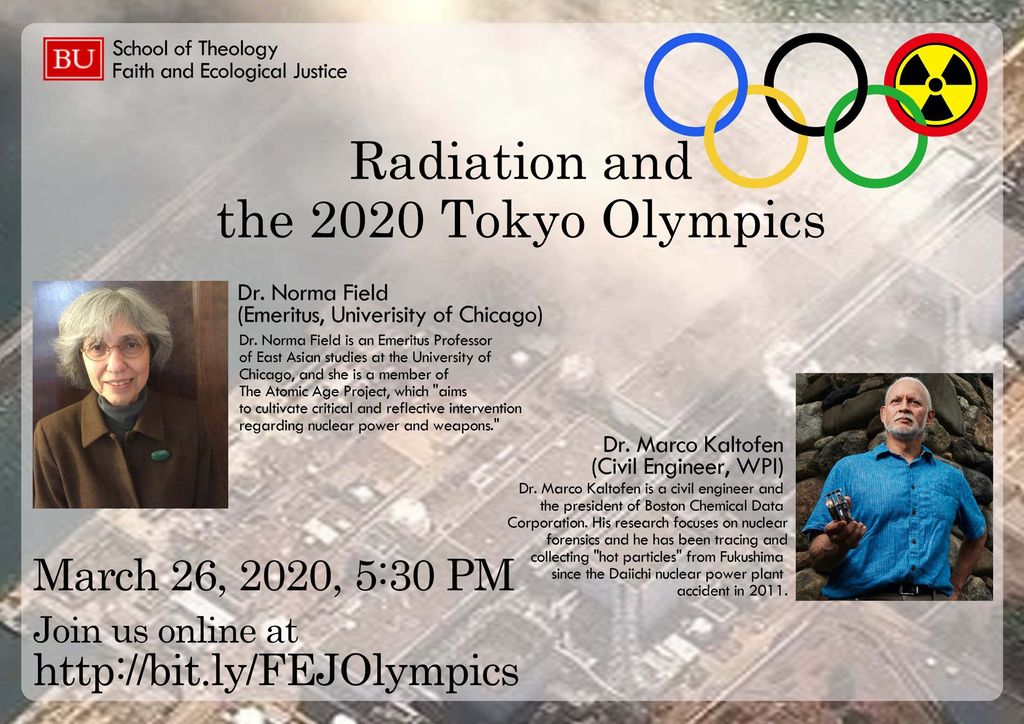
Yoon Sun Yang wins the James B. Palais Book Prize (Korea) from the AAS
Associate Professor of Korean & Comparative Literature and Women’s, Gender & Sexuality Studies Yoon Sun Yang's monograph, From Domestic Women to Sensitive Men: Translating the Individual in Colonial Korea, won the 2020 James B. Palais Prize of the Association for Asian Studies (AAS). The Palais Prize is "given annually to an outstanding scholar of Korean studies from any discipline or country specialization to recognize distinguished scholarly work on Korea." It's the only book prize the AAS gives in Korean, and she will receive it at the upcoming national conference in March, which is being held here in Boston.
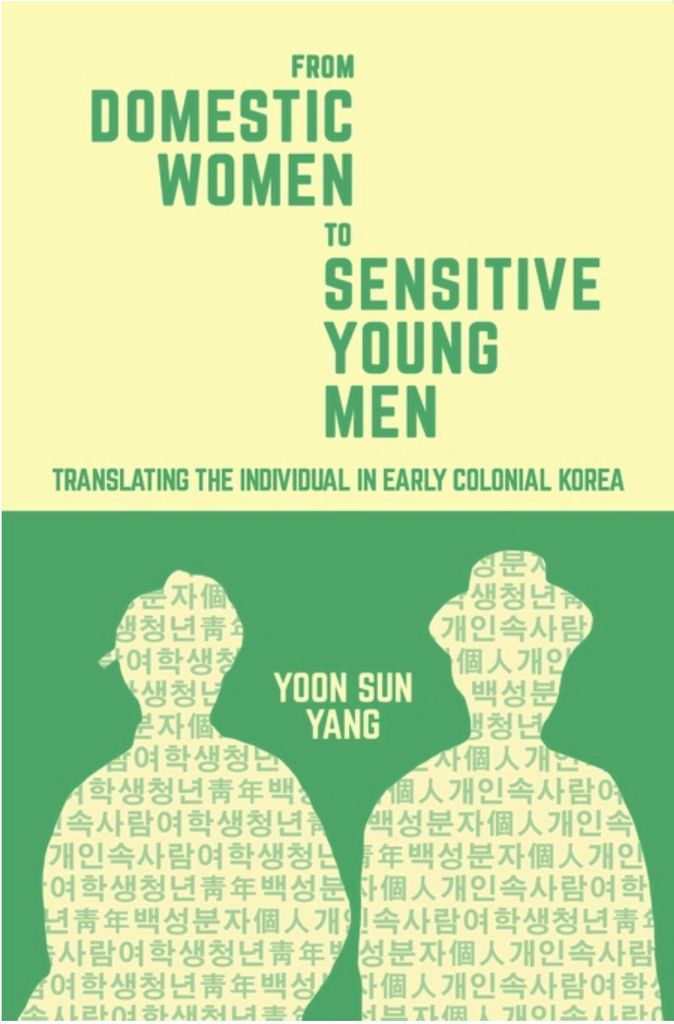
In From Domestic Women to Sensitive Young Men: Translating the Individual in Early Colonial Korea (Harvard University Asia Center 2017), Yoon Sun Yang explores how to read and study modern Korean literature without presuming European superiority. The canonical narrative of twentieth-century Korean literature has been framed by Eurocentric questions: does it live up to the aesthetic standard derived from nineteenth-century European literature? Or how “accurately” did Korean writers portray the quintessential novelistic character in Western literature—the individual? Instead of making an equally problematic Orientalist quest for “essentially Korean” aesthetics, this book looks into how Korean writers innovatively appropriated the European notion of the individual to portray their own modern literary figures between 1906 and 1918 in the process of making sense of the world that was rapidly modernizing under colonial rule. Yang’s reading offers an alternative account about the beginning of modern Korean fiction. She argues the first Korean literary iterations of the modern individual were prototypically female figures appearing in the early colonial domestic novel―a genre developed by reform-minded male writers―as schoolgirls, housewives, female ghosts, the femme fatale, and female same-sex partners. Such female figures have long been viewed as lacking in modernity because, unlike numerous male characters in Korean literature after the late 1910s, they did not assert their own modernity, or that of the nation, by exploring their interiority. Yang, however, shows that no reading of Korean literary modernity can ignore these figures, because the early colonial domestic novel cast them as individuals in terms of their usefulness or relevance to the nation, whether as model citizens or iconoclasts. By including these earlier narratives within modern Korean literary history and positing that they too were engaged in the translation of individuality into Korean, Yang's study not only disrupts the canonical account of a non-gendered, linear progress toward modern Korean selfhood but also expands our understanding of the role played by translation in Korea's construction of modern gender roles.
Her sole-edited volume, Routledge Handbook of Modern Korean Literature, will be published in April 2020. She is currently translating early colonial Korean short stories and essays published between 1907 and 1918 (for the MLA Texts and Translations series) while working on a book-length study tentatively titled “Under the Medical Gaze: Illness, Gender, and Colonialism in Korean Literature.”
Some sample reviews from https://www.hup.harvard.edu/catalog.php?isbn=9780674976979&content=reviews
“From Domestic Women to Sensitive Young Men is a brilliant account of the uneven emergence of the modern subject in Korean literary fiction, immersing us in the historical circumstances of colonialism, censorship, and the transition to modernity that shaped authors and readers alike in early colonial Korea. Taking a neglected but crucial corpus of novels known as New Fiction that flourished after the Protectorate Treaty in 1905, the book argues that the same circumstances that made the political novel impossible created a genre of domestic fiction where the traumas of transition to a modern society were thrashed out. By returning us to these complex and ambivalent literary figures who served as the unacknowledged earliest iterations of the modern individual, Yoon Sun Yang’s book makes a compelling case for the importance of this genre in understanding early colonial Korea. Written in beautiful, measured prose, this book apprises us of the costs of longing for individuality, modernity, and civilization. A work of comparative literature at its finest.”—Ruth Barraclough, Australian National University
“Yang’s important study challenges hegemonic, male-centered historical narratives of intellectual and literary modernity that are both Korean and universal. The book vouches strongly for the embodied nature of the individual subject, which is never transcendent but is always marked by gender, ethnicity, class, and sexual orientation. Emerging from Yang’s clear, precise, and always insightful prose are thus many of the suppressed Others of Enlightenment rationality—insane women, queer couples, sensitive men, female ghosts, and more. An admirable example of feminist literary scholarship, this book will become a must read for scholars and students of Korean and East Asian literature, comparative literature, gender studies, and postcolonial studies.”—Sunyoung Park, University of Southern California
“Yoon Sun Yang’s From Domestic Women to Sensitive Young Men is revisionary scholarship of the best and highest order that will also reach beyond the growing field of Korean literary studies to attract scholars of other national literatures.”—Janet Poole, University of Toronto
Congratulations to three BUCSA-affiliated Faculty Promoted to Full Professor!
BUCSA is delighted to congratulate three affiliated colleagues
on their recent promotions to full professors!
Cheryl Knott, CAS, Anthropology, exam ines orangutan and great ape physiology and behavior, focusing on how primates cope with environmental changes – particularly those resulting in fluctuating food availability. She is a National Geographic Emerging Explorer, has authored dozens of book chapters and journal articles chronicling her research, and is a frequent keynote speaker at conferences and other forums on orangutans, great apes, and rainforest conservation. In 2017, she received the Orang Utan Republik Foundation’s Pongo Environmental Award for ongoing conservation efforts in Borneo, Indonesia.
ines orangutan and great ape physiology and behavior, focusing on how primates cope with environmental changes – particularly those resulting in fluctuating food availability. She is a National Geographic Emerging Explorer, has authored dozens of book chapters and journal articles chronicling her research, and is a frequent keynote speaker at conferences and other forums on orangutans, great apes, and rainforest conservation. In 2017, she received the Orang Utan Republik Foundation’s Pongo Environmental Award for ongoing conservation efforts in Borneo, Indonesia.

Nancy Smith-Hefner, CAS, Anthropology, is a linguist and anthropologist whose research explores language, gender, religion, and sexuality studies in Southeast Asia, most recently focusing on the experiences of Muslim Javanese youth. A frequent presenter at international conferences, she has published extensively in leading scholarly journals and authored or co-authored three books, including 2019’s Islamizing Intimacies: Youth, Sexuality, and Gender in Contemporary Indonesia. Current projects include a volume due out later this year on gender, education, and global delays in marriage and a handbook on gender in Southeast Asia from Routledge.
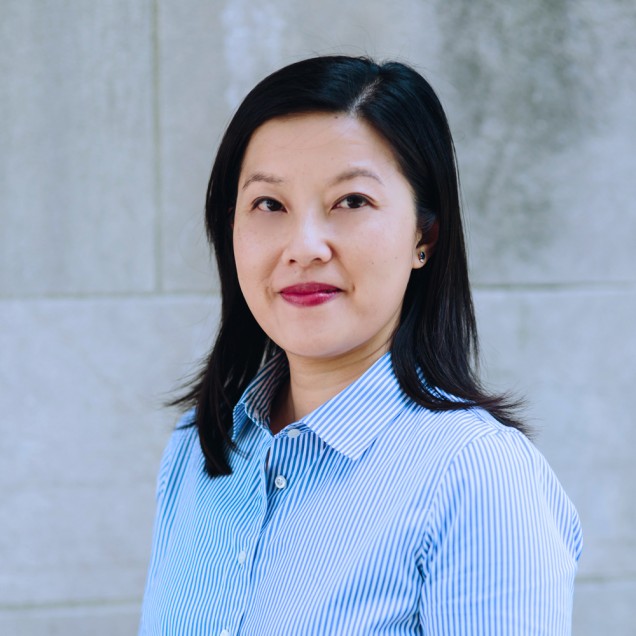
Alice Tseng, CAS, History of Art & Architecture, is a scholar of Japanese art and architecture, with particular focus on the 19th and 20th centuries – from institutional buildings, collections, and exhibitions to the role of the visual arts in cultural transformation. She has received prominent fellowships from the Fulbright Foundation, the National Gallery of Art, and the J. Paul Getty Foundation, among others, and published three books, including most recently, Modern Kyoto: Building for Ceremony and Commemoration, 1868-1940 (2018). Her current research examines the visual and spatial representations of Japan’s modern emperors.

Apply for Manager of Strategic Research, Asian Cultural Council (NY) (deadline March 18, 2020)
Apply for ACC’s Manager of Strategic Research
 The Asian Cultural Council is honored to be selected as one of 21 organizations in the 2020 Mellon/ACLS Public Fellows program, which places recent PhDs from the humanities and related social sciences in two-year staff positions in government and the nonprofit sector.
The Asian Cultural Council is honored to be selected as one of 21 organizations in the 2020 Mellon/ACLS Public Fellows program, which places recent PhDs from the humanities and related social sciences in two-year staff positions in government and the nonprofit sector.
ACC’s Mellon/ACLS Public Fellow would work closely with ACC’s Programs staff as Manager of Strategic Research in New York. Applications close Wednesday, March 18, 9 PM EDT, so apply today!
All applications and questions must be submitted through ACLS. Please do not contact ACC for any inquiries. For more information, visit the ACLS website at https://www.acls.org/programs/publicfellowscomp.
If you know any candidates qualified for this exciting opportunity to work with ACC, please share this email with them.
The Mellon/ACLS Public Fellows program promotes the visibility and value of the humanities PhD beyond the academy by offering offering opportunities for PhDs to take on substantive roles in the fields of policy, community development, arts and culture, media, and international affairs.
Fellows receive an annual stipend of $70,000, access to employer-based health insurance, and ACLS-provided funds for relocation and professional development. This opportunity provides meaningful professional mentoring and career development programming, both in-person and virtually.
The Mellon/ACLS Public Fellows program is an initiative of the American Council of Learned Societies and is made possible by a grant from The Andrew W. Mellon Foundation.
The Asian Cultural Council advances international dialogue, understanding, and respect through cultural exchange activities in Asia and the United States to create a more harmonious and peaceful world. This mission is accomplished through fellowships and other programs that support individual artists, scholars, and arts professionals.
http://asianculturalcouncil.org
The Unforgettable Queens of Islam–Succession, Authority, Gender with Shahla Haeri (Feb. 26, 2020)
The BU Center for the Study of Asia
is pleased to present a lecture by
Shahla Haeri
(Associate Professor of Cultural Anthropology, Boston University)
The Unforgettable Queens of Islam:
Succession, Authority, Gender
Wednesday, Feb. 26, 2020 from 12-1:30 pm
121 Bay State Road, Boston University
(Light lunch provided!)
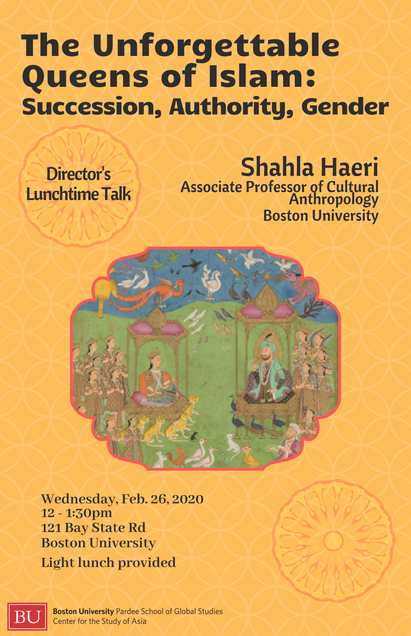
About the Book
The Unforgettable Queens of Islam: Succession, Authority, Gender
In this landmark study, Shahla Haeri offers the extraordinary biographies of several Muslim women rulers and leaders who reached the apex of political systems of their times. Their stories illuminate the complex and challenging imperatives of dynastic succession, electoral competition and the stunning success they achieved in medieval Yemen and India, and modern Pakistan and Indonesia. The written history of Islam and the Muslim world is overwhelmingly masculine, having largely ignored women and their contributions until well into the 20th century. Religious and legal justifications have been systematically invoked to justify Muslim women's banishment from politics and public domains. Yet this patriarchal domination has not gone on without serious challenges by women - sporadic and exceptional though their participation in the battle of succession has been. The Unforgettable Queens of Islam highlights lives and legacies of a number of charismatic women engaged in fierce battles of succession, and their stories offer striking insights into the workings of political power in the Muslim world.
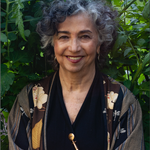 About the Speaker
About the Speaker
A former director of the Women’s Studies Program at Boston University, Shahla Haeri is one of the pioneers of Iranian Anthropology, and has produced cutting-edge ethnographies of Iran, Pakistan and the Muslim world. Her landmark books include her classic ethnography, Law of Desire: Temporary Marriage, Mut’a, in Iran (1989/2014) translated into Arabic and reprinted frequently, highlighting the tenacious but secretive custom of temporary marriage in Iran; No Shame for the Sun: Lives of Professional Pakistani Women (2002/2004), widens the ethnographic scope to make visible lives of educated and professional Muslim women. Her recently released book, The Unforgettable Queens of Islam: Succession, Authority, Gender (Cambridge University Press) is a groundbreaking book on the extraordinary lives and legacies of a few remarkable Muslim women sovereigns from across cultures and Islamic history. Dr. Haeri’s academic and creative oeuvre include directing a video documentary, Mrs. President: Women and Political Leadership in Iran (2002, 46 min.) focusing on six women presidential contenders during the Iranian presidential election of 2001. She is the recipient of many fellowships, grants, and postdoctoral fellowships.
View Professor Haeri's CV
